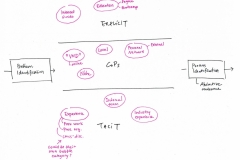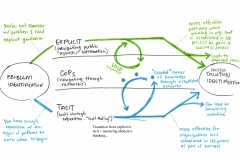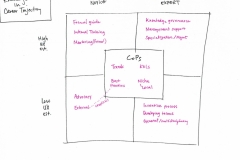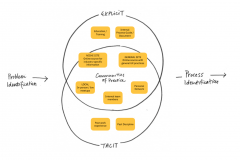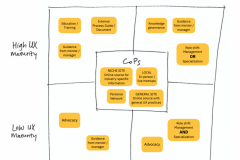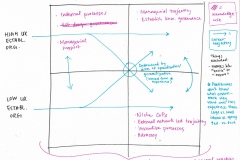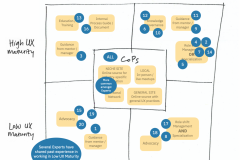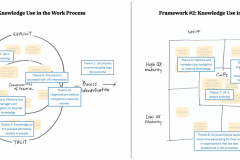“An Exploration of Knowledge Practices Among User Experience (UX) Professionals”
This was my 2021 Master’s Thesis paper from the Master of Information, University of Toronto. You can access the paper through U of T’s “T-Space” Repository. Below is a summary of the thesis that was shared with research participants.
Abstract
This qualitative, exploratory research investigated the knowledge practices of User Experience (UX) designers, an emerging, knowledge-intensive profession that has not been well studied. Three areas of exploration included the way UX designers share knowledge, manage knowledge in work contexts, and participate in communities of practice (CoPs). Grounded Theory Method was employed to generate two frameworks of knowledge
sources, based on 10 emergent themes from 21 interviews with UX professionals: Knowledge Sources in Work and Knowledge Sources in Career Development. These frameworks illustrate sources of knowledge that UX professionals use in their work and throughout their career. They make use of explicit knowledge, tacit knowledge, and CoP participation to help identify suitable work processes. In addition, experience and the level of UX maturity in organizations influence the knowledge sources they use. UX professionals and organizations will find value in these frameworks for enhancing practice and supporting UX career development.
Purpose
Why Study UX Designers?
Competencies of UX professionals need to encompass not only their knowledge of UX methods and skills, but also their ability to seek, use, and communicate their knowledge. UX work is knowledge intensive, both in the application of expertise to solve novel problems, and the need to hone design processes.
Research Questions
How do UX designers share knowledge in their practice?
How does work context influence the way UX designers manage knowledge?
Can knowledge sharing in UX design be explained through communities of practice?
Literature Review Topics
- UX Design as a Profession
- Communities of Practice (CoPs); Online, Criticisms, UX CoPs
- UX Design and Knowledge Sharing
- Grounded Theory
The results of all these studies signal that certain UX knowledge sharing behaviours exist, but an empirical study which deliberately explores them has yet to be conducted. By approaching this study with Grounded Theory Methodology, patterns and themes in knowledge sharing behaviour among UX designers can be captured and analyzed.
Research Design
21 UX professionals were interviewed. They ranged in years of experience, job title, industry-sector, and country.

Grounded Theory Methodology is a qualitative analysis method which was used to analyze the interview transcription for themes.
I used Strauss and Corbin’s concept of coding paradigm. This involves using axial coding as a pragmatic way to find relations between categories. This is an instructive method which involves using a framework to identify causal relations, phenomena, context, learning conditions, action and interactional strategies, and consequences.
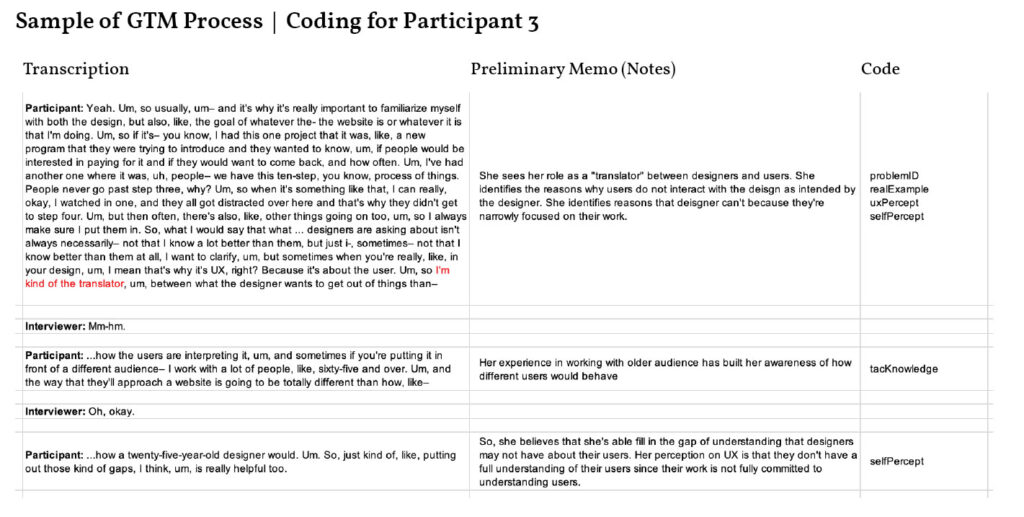
Results
Thematic Analysis
10 themes were drawn from all interview transcriptions and were used as the building blocks to develop two conceptual frameworks:
THEME 1: UX Process Itself Has Considerable Intrinsic Value, Independent of Outcomes
THEME 2: UX Professionals Have Considerable Autonomy in Their Work, Within Constraints Defined by the Organization
THEME 3: Knowledge About Process Ultimately Resides in People
THEME 5: Some UX Professionals Cope with Over-Saturation of Information by Focusing on a UX Subdiscipline
THEME 4: The World Is Saturated with UX Information and Knowledge
THEME 6: UX is Always Evolving
THEME 7: UX Professionals Believe their Competing Organizations Have the Answer
THEME 8: Mentors/Managers are Navigators to Internal Knowledge
THEME 9: UX Professionals Spend More Time Advocating for Their Role in Organizatins that are Less Established in UX Processes
THEME 10: Gaining Leadership Causes a Shift in Mindset from Crafting a Professional Identity to Taking Responsibility of the Organization’s Internal
Knowledge
Knowledge sources from the 10 themes were extracted and contextualized in two frameworks regarding the work process and career development of UX professionals. The two frameworks are shown below as Figure 1 and Figure 2.
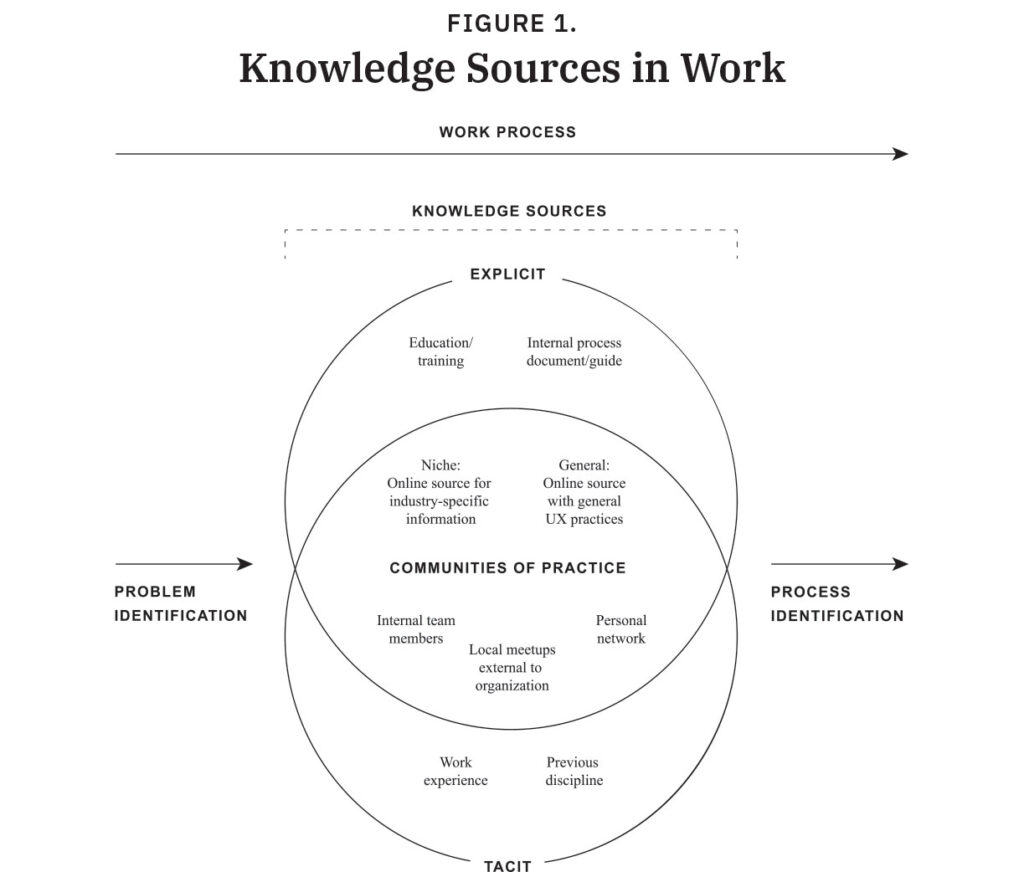
Knowledge Sources in Work (Figure 1) shows that UX professionals use explicit and tacit knowledge sources to identify an appropriate work process to solve a problem. Several knowledge sources are found through communities of practice. Professionals and organizations can use this framework to ensure workers have access to, and proactively use, various knowledge sources to find appropriate work processes.
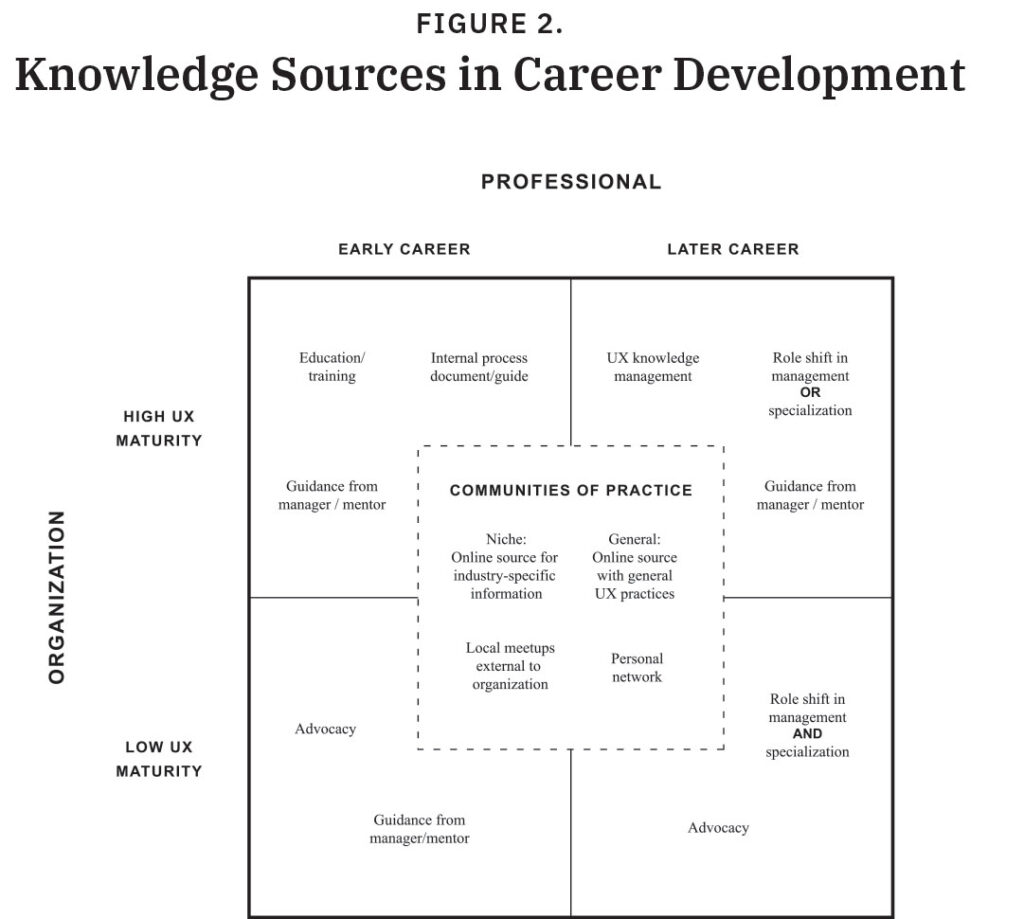
Each quadrant in Knowledge Sources in Career Development (Figure 2) shows knowledge sources used by participants based on their career stage and the UX maturity of their organization. Knowledge sources belonging to communities of practice were common amongst all professionals across different career stages and types of organizations. Professionals and organizations can use this framework to gain foresight in the type of knowledge sharing practice that is particular to one’s career stage and the level of UX maturity in their organization. This framework also works as a map to identify areas for future research.
Framework Iterations (click to enlarge)
Implications
The frameworks have implications for both professionals and organizations. Practitioners can use the frameworks to be mindful of the variety of knowledge sources they use in their work process throughout their career. Likewise, organizations can use the frameworks to better equip their workers to have access to various knowledge sources appropriate to their work and for career development.
Limitations & Future Research
The limitations of this study centre around the data collection, generalizability, and the subjectivity in qualitative research. Convenience sampling was used in the data collection which limits the generalizability of the analysis. The focus of this research was to explore knowledge practices of UX designers, not to answer exactly what UX designers are doing or what they ought to do in their knowledge practice. This study leaves us with the knowledge sources that can be investigated to better understand how knowledge practices are used by UX designers. Grounded Theory Methodology was used to analyse the data for categories and themes. This method is subjective to the researcher and biases of the researcher can influence the analysis.
Future research can involve:
- Studying the UX profession using different theories in management
- Extending into a longitudinal study to examine the way knowledge sharing practices change in the industry
- Testing the conceptual models in another emerging occupation or industry sector
- Using a variety of methods, including the development of survey instruments to evaluate specific hypotheses
Defense Presentation
View my Master’s Thesis Defense Presentation below.
